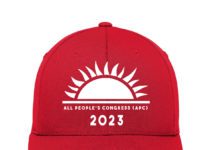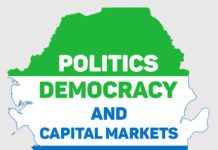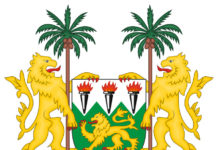by Mahmud Tim Kargbo
21 April 2021
Across Sierra Leone, there is a concerning trend away from the practice of democracy. Basic democratic tenets such as fair elections, journalistic freedom, and professionalism continue to be under attack. There is a growing danger that political parties in governance continue to pursue individual or political parties cabal interests at the expense of the commons or public interests, while the national order that has governed since independence to date continue to decline.
This means Sierra Leone isn’t an exemption to the World Values Survey, which states: There is a commensurately alarming increase in support for authoritarian leaders amongst the younger generation. Millennial are increasingly open to non-democratic forms of government. In 2018, for example, nearly half of all young participants selected “strong leader” as their preferred form of government, as opposed to fewer than 30% of Boomers.
This trend is disturbing, and we need to be concerned. It would be tragic if there were not an all-out effort to revive democracy in Sierra Leone, a form of government that places the ultimate responsibility in the hands of the governed. If we cede responsibility to others, we cede control over what kind of Sierra Leone we want to live in, including our ability to ensure human rights, address poverty, protect the environment, and support national peace and justice efforts.
As the late economist John Kenneth Galbreath put it: “When people put their ballots in the boxes, they are, by that act, inoculated against the feeling that the government is not theirs. They then accept, in some measure, that its errors are their errors, its aberrations their aberrations, that any revolt will be against them. It’s a remarkably shrewd and rather conservative arrangement when one thinks of it.”
To be sure, democracy is messy. No one pretends that democracy is perfect. Indeed, Winston Churchill is often quoted as saying “democracy is the worst form of Government except for all those other forms that have been tried.” It can be overly process-oriented and take time to reach decisions. It requires active participation in the form of debate and compromise. Yet in the long run it is the best system we have to prevent tyranny, injustice, and the arbitrary rule of the few over the many.
PRINCIPLES OF DEMOCRACY:
Our current elected officials (especially our President and Members of Parliament) must start to understand and sincerely teach our people that democracy is not simply a matter of elections. It is a complex system based on various core principles: (1) participatory and inclusive governance; (2) open and transparent governance; and (3) accountable governance. These essential principles are interrelated, and necessary at all levels of government to ensure the “New Direction” government succeed for the good of all nationals.
1. Participatory and Inclusive Governance:
Participatory and Inclusive Governance focuses on deepening citizen engagement. Participation can take many different forms. At a local level, direct participation—wherein decision-making is open to all members of the community—makes the most sense. At the state, national, or global levels, some form of representative democracy must be most practical.
Inclusivity is an important component of participatory governance. Even socially marginalised groups must be included. Systems that deny participation to specific groups because of ethnicity, political party differences, gender, region, or other reasons are bound to fail. Our current President and his team must understand that limited forms of participation can generate skepticism, disillusion, and frustration.
2. Open and Transparent Governance:
Open and Transparent Governance means that citizens have the right to access the documents and proceedings of their government, which in turn supports the practice of effective public oversight. It is worth noting that the principle of open and transparent government is constantly being challenged in our country where government decision-making and operations are conducted without full disclosure. Citizens need to monitor the workings of their governments, and point out government policies and programmes that lack full disclosure.
3. Accountable Governance:
Accountable Governance refers to a wide variety of mechanisms that can be used to hold governments accountable for their performance. These include the practice of democratic elections, separation of powers, the Rule of Law, and a free press.
Democratic elections in Sierra Leone are deliberately held at fixed intervals. Democracies do not elect dictators or presidents- for-life. Meaning elected officials are accountable to the people, and they must return to the voters at prescribed intervals to seek a continued mandate. This means that elected government officials must accept the risk of being voted out of office.
The premise behind the use of separation of powers is that when a single person or group has a large amount of power, they can become dangerous and prone to lose their accountability to those they serve. Separation of governmental powers between the executive, legislative, and judicial branches of government is a mechanism for removing the amount of power in any group’s hands, and increasing its accountability for performance.
The rule of law is based on the legal principle that law should govern a nation, and not individual government officials. Rule of law implies that every citizen is subject to the law, including lawmakers themselves. It stands in contrast to the idea that the ruler is above the law. The rule of law often in Sierra Leone is imperfectly implemented. We continue to see widespread instances of violence and injustice perpetrated against the poor, with the perpetrators not prosecuted.
The media also plays a vital role in helping hold governments accountable. A free press provides valuable information that helps ensure that citizens make responsible, informed choices rather than acting out of ignorance or misinformation. That’s why the media is often called the fourth branch of government (or “fourth estate”). That’s because it monitors government actions in order to ensure that leaders don’t abuse the democratic process.
MAJOR CHALLENGE:
The major challenge for Sierra Leone in the 21st century will be building a sustainable national community. If we don’t achieve this objective, many people will keep on suffering and our country will become less and less hospitable. The building of such a community requires that we establish systems of governance at all levels that allows people to participate in the governing process and hold their leaders accountable. Our President and his close team must be willing to follow the principles of good democratic governance: openness, transparency, participation, inclusivity, and accountability. At the moment many people within our government do not understand the values of these principles, and many among them are a long way from adapting them, and too few within the current SLPP “New Direction” government recognise their importance.
There is much work to be done.



